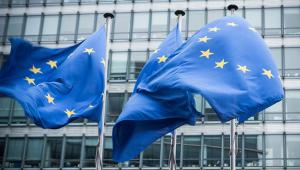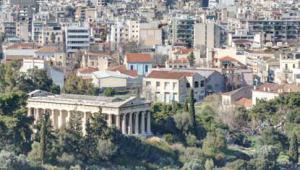Seventeen hours of negotiations ended with eurozone leaders agreeing yesterday that up to €50bn worth of Greek assets would be transferred to a new fund, of which €25bn will be used to recapitalise the country’s banks.
The fund will be based in Athens, not Luxembourg as the Germans had originally demanded.
Following the all-night talks in Brussels, Greek prime minister Alexis Tsipras, said Greece had “fought a tough battle” during the negotiations and that although a the “deal had been difficult” it “averted the pursuit to move state assets abroad”.
“We averted the plan for a financial strangulation and for the collapse of the banking system,” Tsipras said.
“The deal is difficult but we have prevented the pursuit of a transfer of public property abroad, we have prevented the plan of financial affixation and the collapse of the financial system, a plan that was designed up to its last detail, perfectly and recently and had started to be implemented.
“Finally, we achieved in this hard fight, in these negotiations, restructuring of the debt and secured financing for the medium term.”
Dutch finance minister Jeroen Dijsselbloem, president of the Eurogroup, said: “As my colleagues have already said, trust was a key issue, but we also worked very hard on a number of issues regarding reform, the fiscal situation, the debt problems and financing needs.
“We were able to agree on a lot of these issues, putting in extra effort on all sides to get Greece back on track.”
The plan includes the creation of a €50bn Greek-based fund that will privatise or invest Greek assets, he said.
“That money will be used to help reduce debt. It will also be used for the repayment or recapitalisation of banks,” Dijsselbloem added.
European Council president Donald Tusk added that the 19 eurozone leaders had unanimously reached an “aGreekment” for a third bailout programme that included serious reforms and financial support.
Negotiations on a new programme, which could unlock up to €86bn for Greece under the European Stability Mechanism (ESM), were now ready to begin.
“The approval of several national parliaments, including the Greek parliament, is now needed for negotiations on an ESM programme to formally begin,” Tusk said.
The agreement, he added, had averted the risk of social, economic and political consequences that a “negative outcome” would have brought.
Greece will now have to cut its pensions bill, streamline the VAT system and raise tax revenues, privatise the electricity network and review and modernise the country’s union laws and further strengthen the product and labour markets in order to get these desperately needed funds.
The cash-strapped country is expected to legislate these proposals by Wednesday to “recover trust” in the whole process and between member states.
However, it could take weeks or months before the mooted €86bn is available because the package must be signed off by half a dozen European Parliaments.
In the meantime, Greece must find €12bn to repay its creditors by the end of August, including €4.2bn to the European Central Bank on July 20, or suffer a catastrophic banking collapse.
Eurozone finance ministers are considering ways of granting Athens a bridging loan to avoid bankruptcy, so it can meet its immediate financing needs and allow banks to reopen, if conditions are met to a new Greek bailout deal.
Dijsselbloem said: “Over the next two days the focus of attention will be on the Greek Parliament. As soon as they have completed the legislative process, the other national parliaments will get to work, and hopefully by the end of the week we can take a decision on mandating the institutions to draw up an agreement.”
The time needed to conclude a deal could be “will probably be closer to four weeks than two weeks. That is my understanding and some call me an optimist. So the path for this week is clear: if all goes well we will have two conference calls to further set off the process,” he added.
A technical working group has been set up to consider the issues of short-term financing, he said, adding that “bridge financing” was being looked into because of Greece’s urgent needs.
But he said, “it is very complex. We haven’t found the golden key to solve that issue”.








